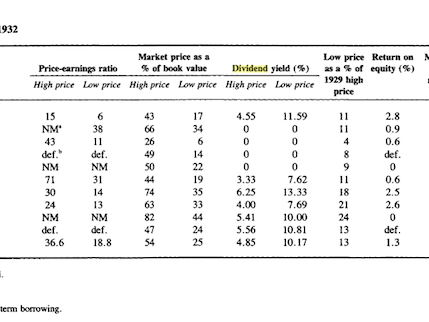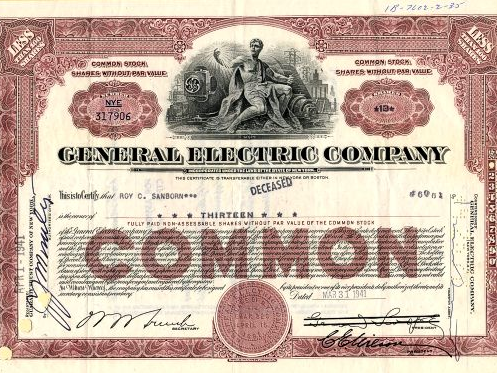[vc_row][vc_column][vc_column_text css_animation=”none”] [/vc_column_text]
[/vc_column_text]
One of the ways I manage my life is to sit in a room several times a year, staring off into the distance, and trying to imagine 5, 10, 15, 20, 30+ years in the future. I ask myself what things I wish I had done when I was younger, what things I would have wanted to avoid, what risks I would have wanted to take, and what experiences I would have wanted to have. A topic that has come up several times during these exercises is the concept of energy assets. A portfolio of energy assets is fundamentally different in nature than almost any other security, business, or holding.
I’m working my way through a 1985 book called The Crash and Its Aftermath: A History of Security Markets in the United States, 1929-1933, which covers the darkest days America has ever known. In 1932, during the depths of the Great Depression, the long-term United States Treasury bond yield was 4.25%. At this moment in time,…
I often get messages from some of you expressing a desire to invest but not wanting to sign up for a life buried in balance sheets or income statements. The good news: In investing, you can do extremely well if you have a few good, big ideas in your lifetime. You don’t have to become a master of everything. You just need to understand what you are doing, focus on it with the persistence of a pit bull, and be patient during the periods when there is nothing attractive to do, content to sit on cash. There is no need to master every industry, or spend your evenings pouring over the disclosure documents of a pharmaceutical giant to make money. It isn’t necessary.
How to Remain Detached from the Stock Market and Treat Your Investments Like Private Businesses When I was much younger, I kept seeing Benjamin Graham’s famous allegory called Mr. Market mentioned by great economists, investors, and financial historians. I bought a copy of The Intelligent Investor to figure out why everyone was so enthralled with a book…
Here are some words of wisdom I came across about portfolio management and building wealth from billionaire Charlie Munger. We’ve really made the money out of high-quality businesses. In some cases, we bought the whole business. And in some cases, we just bought a big block of stock. But when you analyze what happened, the…
Before you invest a single penny of your money into a potential stock, bond, project, or other asset, there are two questions you should ask yourself. These two questions could have saved a lot of investors from asset bubbles and bankruptcy court. #1 – Does the Investment Offer an Adequate Rate of Return All Things…
I write a lot about investing in stock and investing in bonds over at Investing for Beginners at About.com, a division of The New York Times. There is a reason I tend to be far more favorable to equity investments (stocks) than fixed income investments (bonds) when it comes to long-term investing and why much…
One technique I find helps a lot of investors act more rationally is one I developed during my late teenage years. I would convert all companies I was analyzing to $100 per share to make comparison of the figures and yields easier. In essence, this allowed me to ask the question, “How much profit am I buying for every $100 I put into this company?” If I paid a high multiple for a particular business, it forced me to justify the higher valuation by writing down my reasons for my belief.
I thought it might be useful to show you how I’d analyze an investment portfolio and calculate a reasonable estimate of not only expected growth in capital but the overall economic characteristics of the holdings.
Years ago, I vaguely remember hearing someone comment that it was interesting how differently we measure wealth today compared to British society at the end of the 19th century. This made me realize that most people don’t even know there is a difference; that there are primarily two ways you can think about measuring your wealth and which you choose for your own household will influence how you behave, the capital structure you employ, and even how you think about risk.
[vc_empty_space][vc_column_text css_animation=”none”]

[/vc_column_text][/vc_column][/vc_row]












